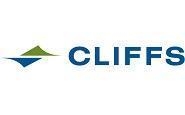Prices

July 20, 2019
Cleveland Cliffs Capitalizes on Higher Ore Prices and Pellet Demand
Written by Sandy Williams
Cleveland Cliffs reported a dramatic increase to $249 million in adjusted EBITDA in the second quarter compared to $21 million in the first quarter of this year. Seasonality and stronger than expected demand resulted in shipping volumes of 6.2 million long tons.
The full year pellet forecast remains at 20 million long tons despite reduced shipments to a major client who has accelerated a planned maintenance outage. Cleveland Cliffs is expanding its sales to the seaborne market and expects to export “meaningful” tonnage of DRI grade pellets to regions such as North Africa and the Middle East. Cliffs is also increasing shipments of pellets to its Toledo HBI facility in preparation for an earlier start-up.
Iron ore pellet pricing was at a six year high in second quarter at an average net selling price of $113 per long ton. Higher iron ore prices helped to offset a decrease in domestic hot rolled coil pricing.
“With HRC index pricing reaching a low of $510 per short ton during the second quarter, we had to make a sizable negative true up adjustment to revalue pellets sold in prior periods,” said CFO Keith Koci. “As iron ore prices continue to average up and assuming the recent recovery in steel prices continues on its current upward trajectory, we would no longer be subject to negative true ups and can expect even higher selling prices for our pellets in the future.”
Higher iron ore prices as a result of shortages in the seaborne iron ore market are not likely to be resolved in the short or medium term, said Chairman and CEO Lourenco Goncalves. He reiterated his message from first quarter: “Welcome to The New Normal, get used to the New Normal.”
Cliffs is increasing third quarter intercompany sales of DR grade pellets from 500,000 long tons to 800,000 long tons to offset a reduction in nomination from a client and to provide pellets for the new Toledo HBI facility.
Construction at Toledo is approximately two months ahead of schedule and the facility is expected to begin commercial production of HBI no later than June 2020, ramping to full capacity in 2021. The HBI facility will help mitigate the impact of market fluctuation and production decreases at mills. New pellet contracts that have “take or pay” components will provide another layer of protection, said Goncalves.
“With the addition of our HBI plant, we have created new demands for almost three million long tons of pellets per year. These new demands will in good times tighten the market, and in the bad times provide us with volume, while paying ourselves at a healthy margin,” said Goncalves.
“We now have more optionality and product flexibility. We can make a standard, flux, super flux in DR grade pellets. We can access both the EAF metallic markets and the traditional blast furnace market, with quality specs for the full spectrum of needs.”
Environmental, social and governance compliance will also be a boon to Cleveland Cliffs as the global steel industry transitions from blast furnaces to electric arc furnaces that are more environmentally friendly.
“Despite several centuries of efforts, the world has yet to identify a viable replacement for steel, while producing and consuming steel at a pace that continues to accelerate. However, I made this point before and I’ll do it again, the world needs more steel, but the world also needs less pollution,” said Goncalves.
“The future will be high grade iron units, meaning high iron ore content or pellets and metallic. This is what Cleveland Cliffs is about, and any initiative we explore in the future will be centered on these core products, predicated by what we feel is an undeniable trend.”







